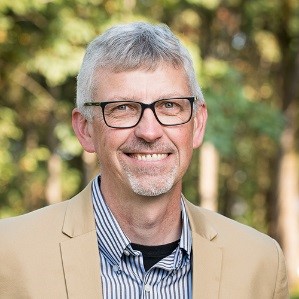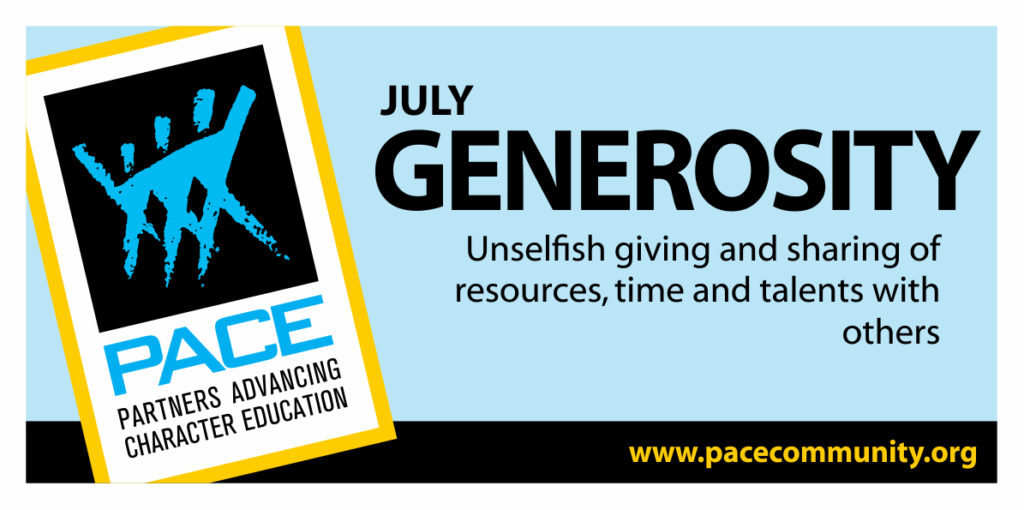
Ron Jacobson, Whitworth University
Integrity by Ron Jacobson, Dean of the School of Education at Whitworth
My dad will turn 91 this June. I have had the privilege of knowing him for two-thirds of those 90-plus years. And, of the many things I could say about my dad, one of the most profound descriptions I can offer is this: my dad is my dad. Let me explain. Years ago, I found a copy of my dad’s senior year high school yearbook. As is typical of yearbooks, I found a section where graduating seniors bequeathed items or gave advice to those underclass men and women who would soon follow in their footsteps. What my father offered surprised me. He gave simple words of advice: “Don’t think too highly of yourself. Be humble.” I don’t know what I expected, but it was something other than ‘be humble’. As I reflected on that advice, I came to realize those weren’t just words of advice, they were words that described my dad. Even into his 90th year, my dad exemplifies the ethic of ‘not-thinking-too-highly-of-oneself’. In fact, he has been incredibly, consistently humble.
The character trait I was asked to address in this article is ‘integrity’. There are so many things that could be said about integrity. But, considering the concept over the years, I have regularly come back to the notion of consistency. Integrity as a character trait, at least in some measure, points to a person who is consistent; not perfect, but consistent. When we interact with an integrous person, we know what to expect. Why? Because, what they do is tied to who they are. For example, my dad doesn’t just ‘do’ humility, he is humble. I can count on that. Of course, there are loopholes in my case, cracks in my argument. Some might ask, “if a person consistently lies, does he have integrity?” Good question, but one we can’t fully explore in this short article. We can work to determine ‘good’ consistency from ‘bad’ later, but nevertheless, I would argue that consistency is integral to integrity.
I now come to my last point: teachers. As I have observed over the last couple of months living under a declared pandemic, specifically how P-12 educators (teachers, principals, school counselors, and school staff) have responded to an unknown world, I have continued to come back to the notion of integrity. These P-12 professionals, and I employ the word ‘professionals’ intentionally, have risen to the occasion. We have all witnessed the food distribution sites set up by schools to serve families (this wasn’t required). We have become aware of schools serving as child care providers for first responders and medical professionals (when was that in their job description?). We have witnessed countless teachers standing out in front of their students’ houses, answering math questions on white boards, putting up congratulatory signs in the yards of graduating seniors, leading drive-by parades through their students’ neighborhoods to cheer them on, etc. And, of course, we are cognizant of the hundreds of hours these professionals have put in translating lessons from in-person to remote instruction. Why do these teachers do it? My premise is this: not because they are forced to, not because it is their job, but because it is who they are.
Our educators are professionals and that work flows from consistent integrity. What I have witnessed, which is what I’ve always known, is that our P-12 educators are passionate about the work, love the kids in their classrooms, and are unbelievable good at what they do. Do I worry what will happen when this pandemic is over and our kids head back to school? Am I afraid that they’ll be permanently behind in their studies, worried about a generational deficit? Not in the least. Their teachers, principals, school counselors and school staff have got this. Not because of how well they get paid, but because it’s who they are. In these days we are witnessing the very definition of integrity all around us. It was always there, we just may have missed it. But now, as we watch our teachers rise to the challenge, it is even more poignantly on full display.
Bio:
Ron and his wife, Michele, moved into the west central neighborhood of Spokane last summer. After serving as Executive Director of the School of Education at Central Washington University and, before that, the dean of the College of Education at Northwest University, Ron joined the Whitworth community as the dean of the School of Education in July of 2019. Ron’s educational background is in economics, applied theology, educational leadership and policies studies. His research interests have largely been focused in the motivations surrounding school bullying (i.e., why kids choose to publicly target their classmates).
His new home, Whitworth, was one of the founding partners of the PACE organization in 2009 and since that time has been actively supporting the organization through participation on the executive board, in the annual Educator Workshops, as coordinator for the PACE School of Character applications and through sponsorship in events such as the annual PACE Awards Banquet.

